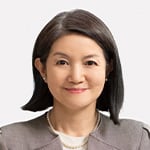On March 31, 2023, the Japanese Ministry of Economy, Trade and Industry (“METI”) initiated a public comment procedure for the Draft Amendment to Ministerial Ordinance and the Draft Amendment to Circular that is intended to impose new export control requirements on certain sensitive semiconductor manufacturing equipment from Japan. The public comment period is from March 31st, 2023 to April 29, 2023. Anyone can submit a comment through either (i) the Japanese government’s website, (ii) email, or (iii) mail.
Overview of the Draft Amendment to Ministerial Ordinance
The draft amendment to Ministerial Ordinance identifies specific goods and technologies that will be controlled.
The newly controlled items include semiconductor manufacturing equipment, test equipment, and masks or reticles used for the manufacture of integrated circuits, or components or accessories thereof. Programs that are designed to use those items will also be controlled.
In addition, pellicle specifically designed for equipment for manufacturing integrated circuits using extreme ultraviolet (EUV) will be controlled as well.
Overview of the Draft Amendment to Circular
The proposed amendment to the circular further identifies specifications of some of the newly controlled items.
It also clarifies that companies may apply for a special bulk license to export the newly controlled items to “non-white list” countries, including China. The bulk license cannot be used to export the newly controlled items to Afghanistan, Iraq, Iran, North Korea, Congo, Sudan, Somalia, Central Africa, Belarus, South Sudan, Libya, Lebanon, or Russia.
****
If you have any questions concerning the new export control regulations in Japan, please feel free to contact the experts in this blog.


